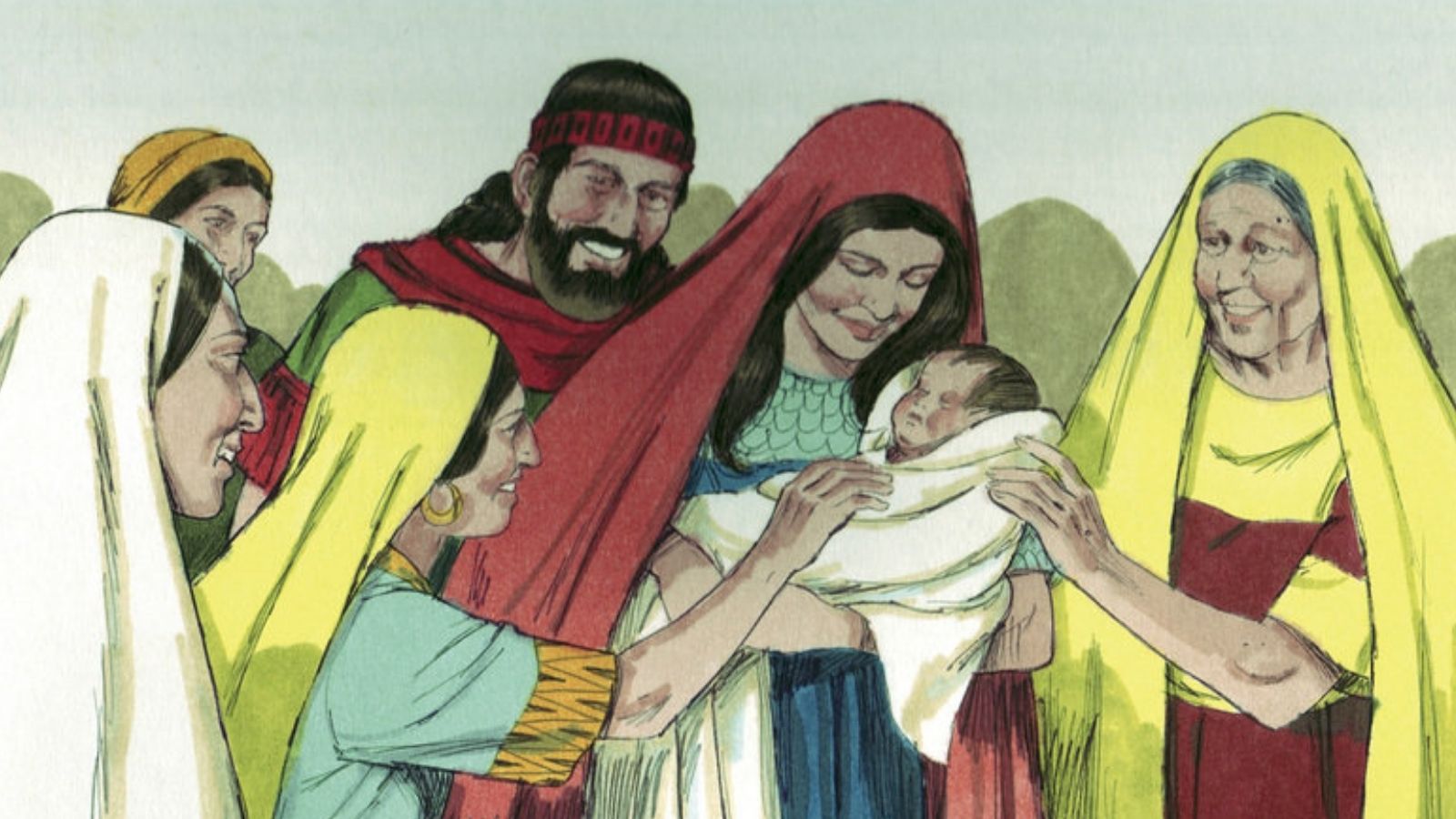Traditionally, the Book of Ruth is read on the second day of Shavuot each year. While the story is riveting in its own right, it is the characters that really create the story. Each of the main characters in the Book of Ruth have carefully chosen Hebrew names which describe their roles in the story and their places in the world where they lived. Read on to learn a little bit about the main characters in the Book of Ruth:
Elimelech
Elimelech can’t really be considered a main character since he dies so early in the story (the third verse, to be exact) that his presence is barely felt. His two sons also die early in the first chapter, and after that the rest of the book centers on his widow, Naomi, and his widowed daughter-in-law Ruth. Elimelech is the patriarch of the family and that is pretty much the only thing readers ever know of this man. His name, meaning “my God is king,” indicates his piety.
Mahlon and Chilion
Elimelech’s two sons also don’t really deserve the title of “main characters” (they even have to share a section in this article!). Both sons die right at the beginning of the story as well, and their names indicate that this is all that is significant about them, from the story’s perspective: Mahlon means “weakness” or “sickness” and Chilion means “annihilation” or “consumption.” Their names say it as it is: these men aren’t sticking around for long.
Naomi
Finally someone who doesn’t kick the bucket! Naomi, Elimelech’s wife (then widow) is one of the two most important characters in the Book of Ruth. Naomi’s life is a real struggle for most of the Book of Ruth. First, she flees from her homeland due to famine, then her husband dies, and as if that isn’t enough, soon after, both of her sons die as well. Totally impoverished and bereft of her husband and sons, Naomi decides to return home to Bethlehem and warns her daughters-in-law that she cannot provide for them and they should return to their fathers’ homes. Naomi’s name means “pleasantness,” but when she eventually returns to Bethlehem in grief, she rejects the name Naomi and asks to be called Mara, which means “bitter.” But don’t worry, her story does have a happy ending.
With your help, My Jewish Learning can provide endless opportunities for learning, connection and discovery.
Orpah
Orpah is one of Naomi’s two daughters-in-law; married to Naomi’s son Chilion before he passes away. After her husband dies, Orpah begs to travel with Naomi to Bethlehem, however, once she learns how tough the journey will be, she pretty quickly decides to stay in Moab. This move is pretty telling of her character. She doesn’t stand much of a chance of being a great character anyway: her name means “back of the neck,” as in what you see when someone turns and walks away. The author of the Book of Ruth clearly didn’t like Orpah. But here is a fun fact: The famous talk show host, Oprah Winfrey, is named for this minor biblical character.
Ruth
Ruth, our titular character, is the other daughter-in-law of Naomi. Originally a housewife in Moab, married Naomi’s son Mahlon, she loses her husband before they have any children. Unlike Orpah, Ruth is completely loyal to Naomi and follows her to Bethlehem once their husbands have died, becoming part of the people of Israel. Her declaration to Naomi — “Do not urge me to leave you, to turn back and not follow you. For wherever you go, I will go; wherever you lodge, I will lodge; your people shall be my people, and your God my God. Where you die, I will die, and there I will be buried. Thus and more may the LORD do to me if anything but death parts me from you.” — is considered the paradigmatic biblical expression of loyalty and Jewish tradition looks upon her as the model convert. Ruth’s name means “friend” or “companion,” which clearly fits her perfectly.
Boaz
Thought there were no significant men in this story? Meet Boaz, described as “a prominent wealthy man” and “a kinsman.” Boaz meets Ruth when she gleans in his field and he is in awe of Ruth’s generosity toward Naomi. He falls for her quickly. Conveniently, as a relative of Elimelech, (Naomi’s dead husband) due to the biblical laws of levirate marriage it is actually Boaz’s duty to marry Ruth and raise up children in the stead of her deceased husband … if there isn’t a closer relative alive. After a short, honest confrontation with a closer “redeeming kinsman,” Boaz ends up marrying Ruth to Naomi’s delight, the two have a son together, and he becomes the grandfather of Israel’s greatest king — David. Boaz means “in him there is strength.” This may refer to Boaz’s qualities or to the fact that the “discovery” of Boaz brings strength back to Naomi’s character.
Peloni Almoni
Remember the “brief confrontation” mentioned between Boaz and another of Ruth’s relatives? That relative is this guy. “Peloni Almoni” basically means “so-and-so.” He never gets a name in the story which matches his laissez-faire attitude about Ruth.
Baby Obed
Obed is the son of Ruth and Boaz. This baby brings a sense of security back into Naomi’s life, a feeling she had not known since her husband was alive. The name Obed, which means “one who serves” is fitting for the role which he has: nourishing and comforting Naomi, his grandma. He will eventually have a son named Jesse who will become the father of King David.



